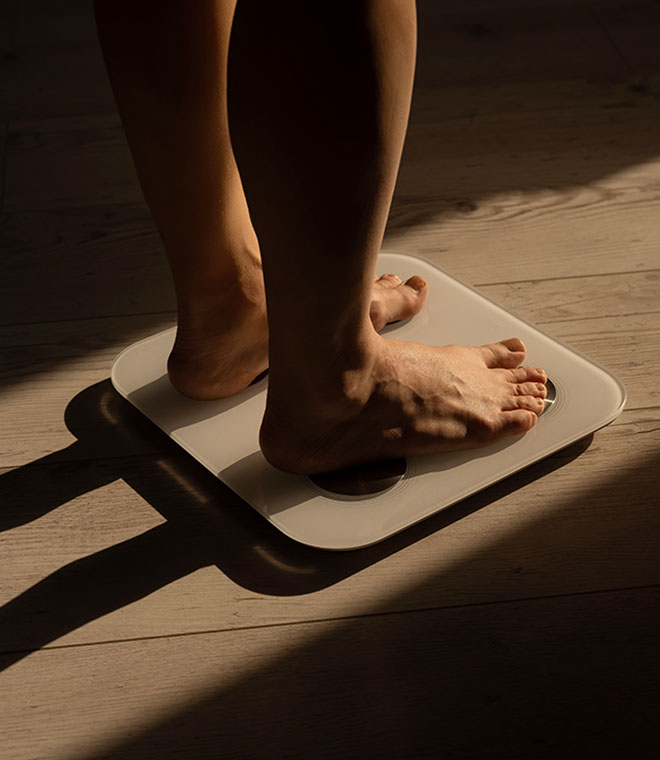Wellness
OCD medications and treatment
By Ruben J. Rucoba, MD Jun 12, 2021 • 6 min
Obsessive-compulsive disorder (OCD) is a condition that's dramatized often in movies, TV shows and books.
OCD is no laughing matter, though, especially for those who have it. If you have this condition yourself, or someone you care about has it and you're wondering about how to manage symptoms of OCD, know that there is help available.
What is OCD?
People with OCD have obsessions, compulsions or both. Obsessions are recurring, unwanted thoughts, sensations, urges or mental images that cause anxiety, such as fear of germs or all-consuming thoughts of sex. Compulsions are repetitive behaviors, such as frequent hand-washing or performing tasks in a ritualized, precise way.
We all obsess about one thing or another at some point in our lives, but this doesn't mean we have OCD. This sort of obsession is different from OCD, because for a person with OCD the thoughts and behaviors interfere with how they function effectively in everyday life.
How to treat OCD
There is no cure for OCD, but people can get treatment for the symptoms, which usually leads to a more productive life. There are two main treatments for OCD—psychotherapy and medication. Often, the most effective treatment is a combination of the two.
Cognitive behavioral therapy (CBT) is the main type of psychotherapy used. For OCD, this therapy usually uses exposure-and-response prevention. This involves exposing the person to an object, situation or obsession (germs or a contaminant, for example) that makes them anxious and then helping them learn ways to resist the urge to engage in their ritual behaviors.
What medications are used to treat OCD?
Medications are effective for the treatment of OCD. The medications used as first-line therapy to treat OCD belong to the group of antidepressants known as selective serotonin reuptake inhibitors (SSRIs).
Serotonin is a chemical in the brain known as a neurotransmitter. It is commonly reabsorbed by neurons (brain cells), but by inhibiting or blocking its uptake, SSRIs allow more of the neurotransmitter to be available to do its work. The SSRIs most commonly used as first-line therapy for OCD include:
- Citalopram (Celexa)
- Clomipramine (Anafranil)
- Escitalopram (Lexapro)
- Fluoxetine (Prozac)
- Fluvoxamine (Luvox)
- Paroxetine (Paxil)
- Sertraline (Zoloft)
- Venlafaxine (Effexor), which is a selective serotonin and a norepinephrine reuptake inhibitor (SSNRI)
It may take four to six weeks, and as long as 10 to 12 weeks, before people see some improvement while taking one of these medications. High doses of SSRI drugs are often required in order to provide relief from OCD symptoms. Common side effects of these medications include gastrointestinal symptoms, including nausea, indigestion, diarrhea, vomiting and flatulence, along with fatigue, insomnia, sweating and sexual problems. Many people stop taking OCD medications because of side effects. It is important that you speak with your provider about starting at a lower dose initially to help with the side effects. Although antidepressants are not addictive, stopping the medication abruptly or skipping doses may cause withdrawal symptoms.
One medication that has not been shown to be effective for treating OCD is bupropion (Wellbutrin), although sometimes it is used to manage the side effects of SSRIs when used as an OCD treatment.
Are there natural treatments for OCD?
No natural remedies have been proven to be effective in treating OCD. Many people try natural options, but some of these may affect the brain or body in harmful ways, and some will interact with prescribed medications. Even though natural products are often available in the pharmacy, be sure to consult with a healthcare provider or pharmacist before taking them.
Supplements have also not been shown to help with OCD. As a complementary therapy to medication and psychotherapy, aerobic exercise can reduce baseline anxiety for people with OCD.
Are there other treatments for OCD?
Yes, there are other OCD therapies available, but only for people whose conditions have not improved with CBT or medication. Some alternatives include:
- Deep brain stimulation (DBS). In this procedure, electrodes are implanted deep in the brain to produce electrical impulses that are meant to regulate certain cells and chemicals within the brain. The amount of stimulation is controlled by a programmable pacemaker-like device placed under the skin in the chest area that connects to the electrodes by wires placed under the skin as well.
- Transcranial magnetic stimulation (TMS). In this noninvasive, painless procedure, the healthcare professional puts a metal coil against the scalp of the head to send a magnetic impulse to the brain in order to stimulate portions of the brain, ultimately decreasing the symptoms of OCD.
OCD is a condition that affects the daily lives of the people who have it, and it can sometimes be debilitating. There is no cure, but available treatments may help. If you or a loved one has OCD, talking to a health professional can help you find the right treatment to control this condition, improving quality of life.
Published June 2021.
Sources:
- https://www.nimh.nih.gov/health/topics/obsessive-compulsive-disorder-ocd/index.shtml
- https://iocdf.org/about-ocd/
- https://www.psychiatry.org/patients-families/ocd/what-is-obsessive-compulsive-disorder
- https://www.mayoclinic.org/diseases-conditions/obsessive-compulsive-disorder/diagnosis-treatment/drc-20354438
- https://www.med.upenn.edu/ctsa/forms_ocd_cbt.html
- https://www.aafp.org/afp/2008/0701/p131.html
- https://iocdf.org/about-ocd/ocd-treatment/meds/
- https://www.psychiatrictimes.com/view/3-myths-about-bupropion
- https://iocdf.org/expert-opinions/over-the-counter-supplements-in-the-treatment-of-ocd/
- https://www.nami.org/About-Mental-Illness/Mental-Health-Conditions/Obsessive-compulsive-Disorder/Treatment



